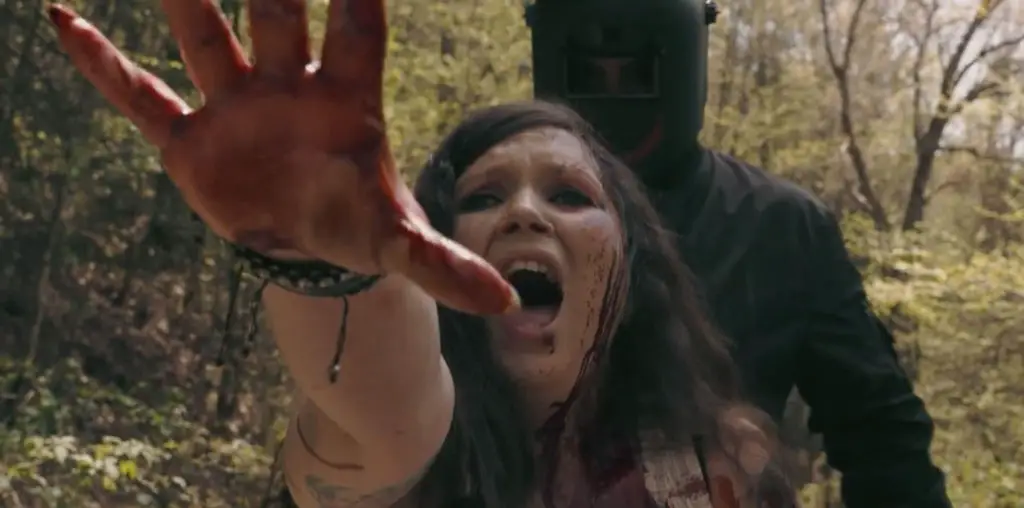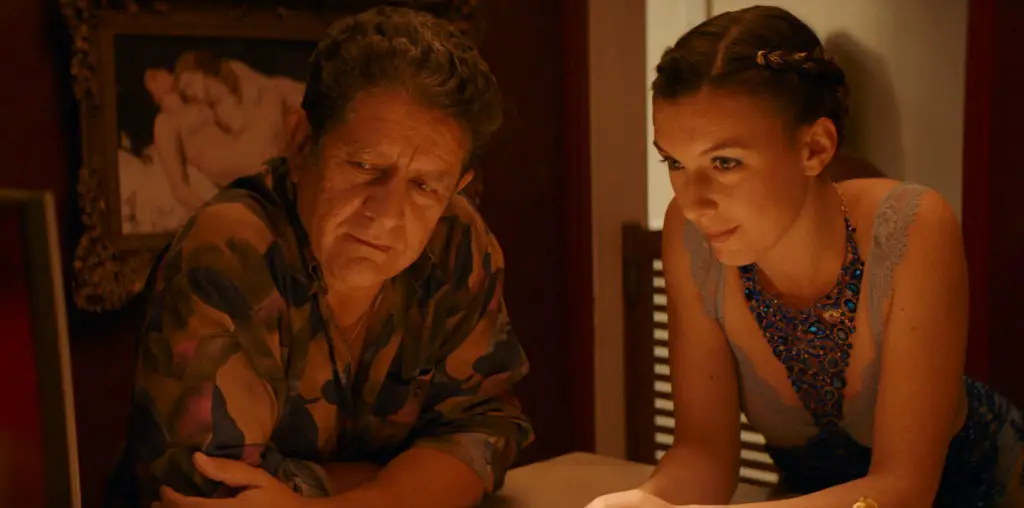
What do you do when film school is driving you crazy? Pour that crazy into a film. This is what Zachary Hansen did and the result is Killer Me, a serial killer thriller about a guy who’s not too sure if he’s committing murders or not.
Killer Me started out as Zachary’s film school thesis project at the California Institute of the Arts. Since its completion, the film has hit several festivals, including Telluride and Method Fest, and has just recently received a DVD release through Vanguard Cinema.
We spoke with Zachary about the pluses and minuses of film school and of course…Killer Me.
Was your time at CalArts a positive experience?
CalArts was a positive experience simply because I survived it. The student body was amazing, an eclectic mix of musicians, filmmakers, dancers, actors, hardcore avant-garde artists and the plain clinically insane. The students opened my mind to different ways of being. At the same time, the film school itself was riddled with divisiveness and widespread immaturity among the faculty. Most of my best experiences at CalArts were outside the film school.
I understand you had a show on the school’s closed-circuit station CH8. What was that all about?
Yeah. “Great Exploitations.” The show was on a closed-circuit campus station that had a “no censorship” policy. My alter ego, a potty-mouthed panda bear puppet named Arthur, would introduce weekly screenings of films like “The Punishment of Anne” or “Love Letters of a Portugese Nun.” The show had a strong leaning towards sex films, though I would also try to screen more extreme exploitation, like “Cannibal Holocaust” (one of the darkest films ever made, an abomination of a movie). With the advent of DVD, all these films are finally getting official releases, but back then I had to show dubs from PAL or Japanese laserdiscs. The show was designed to piss off the politicized art community that demands everything must be aesthetically correct. There were a few minor rants against the show, but for the most part, instead of offending people, the show developed a loyal following. One of my most despised professors even recommended an episode in his class. I guess the show was a failure.
Would you recommend film school to aspiring filmmakers?
I’d recommend film education, but not necessarily film school. It’s essential for people to study the art form obsessively, something that most supposed “film students” don’t do. Most of what I learned was not in classes, but I will say that the time I spent living cheaply off student loans was a nice warming bath where I could focus solely on filmmaking. If you want to go the film school route, try to find a program were the faculty is nurturing. Some programs out there are downright hostile. I’ve met people from various film schools whose dreams were crushed by the experience.
What inspired Killer Me?
CalArts is one of the few schools so lax in their thesis requirements that they will basically allow you to graduate with whatever you want to do. That could be a 30 second video of you masturbating your dog, or a 14-hour two-part documentary about model airplanes. I proposed to them that I would shoot a feature, and they said, “sure, go for it!”
But “what inspired KILLER ME? I told a crowd at the Hamptons International Film Festival that it probably had to do with when I witnessed my father kill my mother. A lie, but I kept them going for a while. The truth is I was slowly going mad at CalArts and I decided to take it out on a script. The first incarnation was a straight slasher about a film student who snuffs out his professors one by one using various pieces of production equipment. First came the deadly tripod with knife legs a la “Peeping Tom.” Then, brutal torture sequences, chopping off fingers with a splicer, fun with testicles and an electric generator. The script was therapeutic, but transformed into something entirely different. Several drafts later, the film school element dropped completely. At one point I added a doppelganger, but that ended up stupid. I combined the doppelganger into one character and tried to make a film that was largely told in the first person.
How did you assemble your cast?
There is an overwhelmingly huge pool of actors in Los Angeles. I put in an advertisement in Backstage West and received about 5,000 headshots of actors eagerly wanting to work for free on my no-budget movie. I did casting for about 8 months, looking at several hundred people for the 18 or so speaking rolls. A couple of people in the film came through recommendations by other filmmakers, but both leads were literally found through headshots. I found George Foster (Joseph) only weeks before production started.
Were there any major problems in getting the film made?
There were a hell of a lot of little problems, but I never experienced that ultimate disaster, like losing rolls of film, or a major investor dropping out, or an actor quitting. We shot the film on a micro-budget level so it was pretty much funded by friends, relatives, a couple grants, and myself. The post-production took 2 1/2 years because I had to keep stopping to get jobs to pay for the thing. A lot of people around me were thinking, “Poor Zach with that unfinished movie,” but there was never any doubt in my mind that I would complete it. The funniest “problem” that happened was when a swarm of killer bees scouted out my sound designer’s (Arlan Boll) house for their new nest. The sound of the bees blew a Foley take, and we spent about 30 minutes fending off the assault. The Long Beach Fire Department and Vector Control came to rescue us, but the bees had lost interest by the time they arrived.
Get the rest of the interview in part two of ZACHARY HANSEN: KILLER HE>>>

